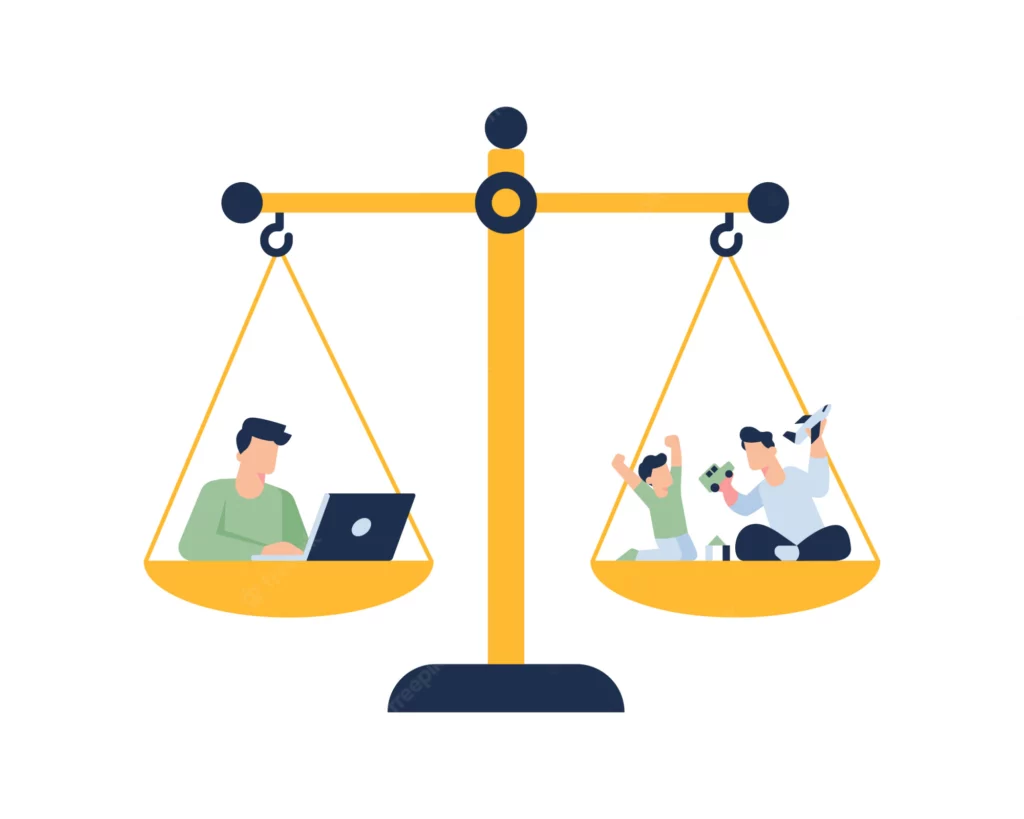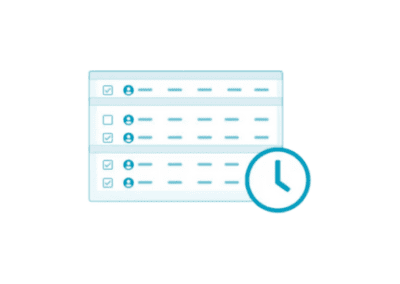In recent years, the corporate world has moved to work from home and employees now expect more flexibility in their jobs. With that, there has been a big focus on work-life balance – in fact it has quickly become a top priority for employees when it comes to choosing where to work. As a manager, it’s your responsibility to provide your employees with work life balance… but how do you do that without impacting your organization?
What are the benefits of a positive work-life balance?

There is no doubt a person’s job plays a huge role in their life. It is most people’s only source of income, how they provide for their families, and where they spend the most time. Colleagues will see one another more than their own families! It certainly is not easy to achieve a work-life balance but the benefits to your employees and organization are countless.
Employees nowadays find it difficult to establish boundaries between personal and professional duties due to being more connected through technology than ever. The pressure of being “always-on” or easily contactable means it’s difficult for your employees to separate work from their personal lives. It is the norm to check emails after work hours and log in on your days off to complete your tasks. This is not healthy. So, let’s look at why you should make this a priority for your organization.
REDUCED HEALTH PROBLEMS AMONGST EMPLOYEES:
According to Forbes.com, achieving a healthy work-life balance is a vital aspect of an overall healthy work environment. It helps reduce stress and helps prevent burnout in the workplace.
Workplace stress is a major issue amongst employees across all industries and it leads to serious consequences such as poor mental health, burnout, heart disease, and high blood pressure.
A positive work-life balance for your employees means happier and healthier employees – both mentally and physically. They will feel fulfilled with the job and enjoy the work they do. Employees spend so much time at work in their lives and so it should be a nice environment.
WORK PRODUCTIVITY:
Maintaining a healthy work-life balance is not only important for the overall health of your team members, but it will also improve your employee’s productivity and performance. Happy employees will work hard and be advocates for your brand.
It will also increase staff retention, reduce absenteeism, reduce your employee health care costs and decrease turnover, saving your bottom line. A Canadian study revealed that employers believe that a major component of the problems faced by their organization is related to poor work life balance: stress-related issues (73%), absenteeism (61%), motivational levels (55%), productivity levels (53%), and punctuality (52%).
INCREASED STAFF RETENTION AND IMPROVED TALENT

Organizations that have a good reputation for work-life balance are popular amongst young workers today. We know how difficult it is to retain good staff and the cost of hiring new employees is high. So, you should consider aiming to keep your current employees happy and let them be your brand advocates.
So How Do You Implement a Fair Work-Life Balance?
Plenty of companies try to create a fun work environment to encourage a healthy work-life balance. However, it takes more than adding some ping pong tables to your office to do so. Firstly, you need to ensure there is trust between management and employees. Employees should have freedom and flexibility, but they also owe it to their managers to be productive and get their work done on time.
BENEFIT PROGRAMMES:
Most companies have benefit plans in place for employees. Good company benefits make companies more appealing to work for and will attract talent to your organization. These include traditional perks like healthcare plans and subsidized gym memberships.
As well as wellness initiatives like nutrition or mindfulness classes and work-from-home practices. According to JLL, preventative healthcare is a growing area for companies. For example, the insurance company Axa has a health program that includes annual checkups, fitness advice, and counselling services.
Other organizations provide employee assistance programs that include virtual mental health consultations. These are great to help reduce employee stress and burnout in the long run.
FLEXIBILITY
Flexibility is the key to a positive work-life balance. Your company can provide the best mental health program there is but if your staff have no flexibility or are overworked, it means nothing. Work flexibility has been shown to decrease stress, boost job satisfaction and help employees maintain healthier habits.
You can do this by offering your team flexible work hours, work from home option, and fair paid time off. Self-scheduling is a great way to allow employees flexibility. You can implement a system whereby employees choose their own hours so they have control over their work-life.
Many employee scheduling solutions offer this option, including Celayix. You can read more on that here.
TIME-OFF

Encourage your teams to take holidays and personal time. Breaks in work are essential so that when employees return they feel refreshed and ready to take on new tasks. Employees need relaxation time and time off to spend with their families. You should also respect their time off, don’t contact them after work hours.
In fact, Portugal has just passed a law that makes contacting employees after hours illegal. The new law states “The employer must respect the privacy of the worker, including periods of rest and family time”. Any violation of the law constitutes a “serious” offence and could result in a fine. France also put this law into place back in 2017. Wouldn’t it be great if more countries followed suit?
The American Sociological Association completed a study that suggests more vacations lead to a decline in the psychological distress of employees. You can encourage your teams to use their holidays by implementing a “use it or lose it” system. This means that unused holiday days can’t be carried over.
SPEAK WITH YOUR EMPLOYEES
An anonymous survey is a great way of getting feedback from your employees. You should ask them how happy they are with their work-life balance at the moment. What are the challenges they are facing and what they would like to see in the workplace?
Sending a survey will help you to understand how your team is feeling and what you can do to help. Once you have all your feedback you can get started on putting the findings into practice.
We understand that implementing a good work-life balance in the workplace is a huge task for organizations. You need to consider management styles, employee scheduling, trust with employees, and communication. However, the impact of a good work-life balance within organizations will lead to significant benefits in the long run. It is really important for employee retention, brand reputation, and worker productivity levels. If you want to learn more about how Celayix can help you provide work life balance through your employee scheduling process, check out a live, custom demo today!




